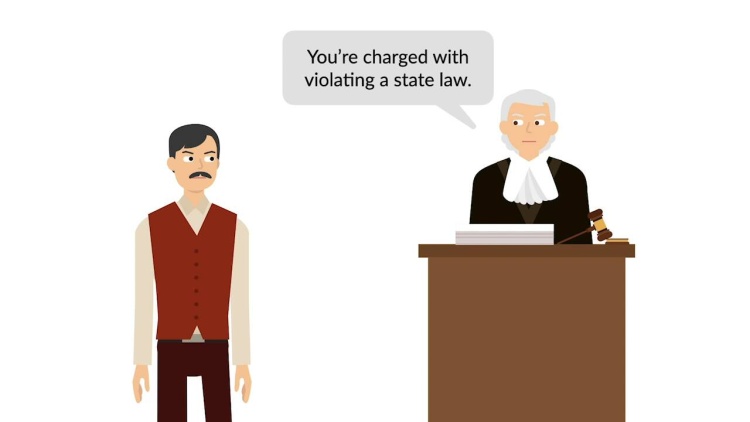Worcester v. Georgia
United States Supreme Court
31 U.S. (6 Pet.) 515, 8 L.Ed. 483 (1832)
- Written by Lauren Groth, JD
Facts
Samuel Worcester (defendant), a white individual, was living on the land of the Cherokee Nation in the State of Georgia (plaintiff). Under the requirements of Georgia law at the time, all white individuals living on Cherokee land were required to obtain a permit or license from the state. The individuals were also required to take an oath of allegiance to Georgia. Under Georgia law, individuals who violated these requirements could be arrested and brought to court. Worcester failed to obtain a permit or take an oath as required under the law and, as a result, was charged and convicted with four years of hard labor in Georgia’s jails. Alternatively, Georgia offered to pardon Worcester’s sentence if he would agree to leave the Cherokee Nation immediately. Worcester refused to accept the deal and instead appealed to the United States Supreme Court for assistance, arguing that Georgia had no right to exert authority over individuals in the Cherokee Nation because (1) the Cherokee Nation was its own state and (2) the enforcement of Georgia’s law would deprive the Cherokee Nation of its autonomy.
Rule of Law
Issue
Holding and Reasoning (Marshall, C.J.)
Concurrence (McLean, J.)
What to do next…
Here's why 907,000 law students have relied on our case briefs:
- Written by law professors and practitioners, not other law students. 47,100 briefs, keyed to 996 casebooks. Top-notch customer support.
- The right amount of information, includes the facts, issues, rule of law, holding and reasoning, and any concurrences and dissents.
- Access in your classes, works on your mobile and tablet. Massive library of related video lessons and high quality multiple-choice questions.
- Easy to use, uniform format for every case brief. Written in plain English, not in legalese. Our briefs summarize and simplify; they don’t just repeat the court’s language.





